Atlas of Nebraska: Everything you wanted to know about the Cornhusker State
Main Speaker: Don Wilhite
Emeritus Climatologist and Drought Management Specialist , School of Natural Resources, UNL
Other Speakers: J. Clark Archer, Richard Edwards, Leslie Howard, Fred Shelley, David Wishart
Date: 9/20/2017
Time: 3:00 PM
Location: Hardin Hall Auditorium (Room 107)
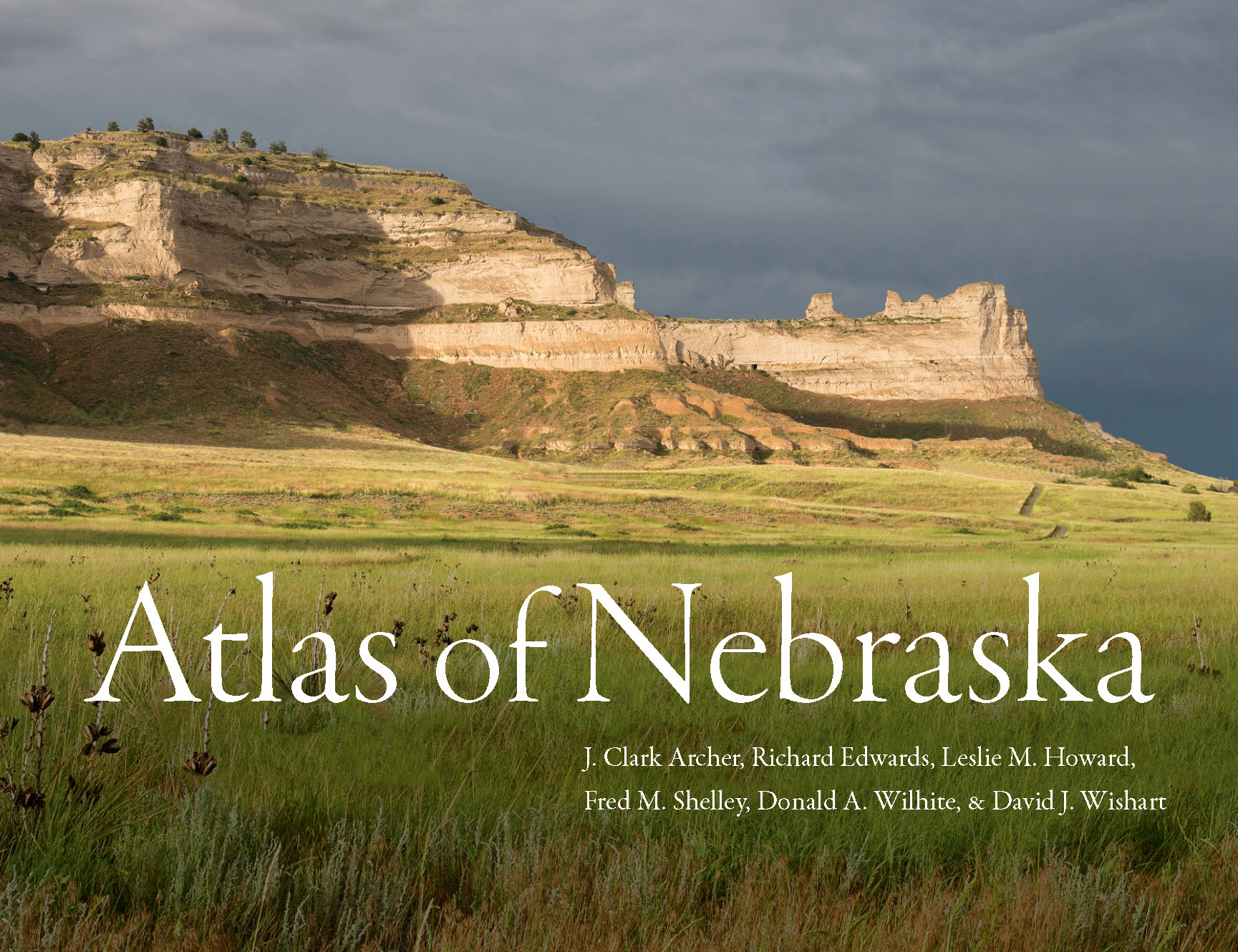
Abstract
The "Atlas of Nebraska" is the first atlas published in more than 30 years. The collection chronicles the history of the state with more than 300 original, full-color maps accompanied by extended explanatory test. The atlas explores myriad subjects from Native Americans to settlement patterns, agricultural ventures to employment, and voting records to crime rates, all the way from the eastern metropolitan cities of Omaha and Lincoln to the ranches of the western Sandhills.Modeling to Learn Biology: Research on how students construct and interpret biological system models.
Main Speaker: Joe Dauer
Assistant Professor of Life Sciences Education , University of Nebraska-Lincoln
Date: 10/11/2017
Time: 3:30 PM
Location: Hardin Hall Auditorium (Room 107)
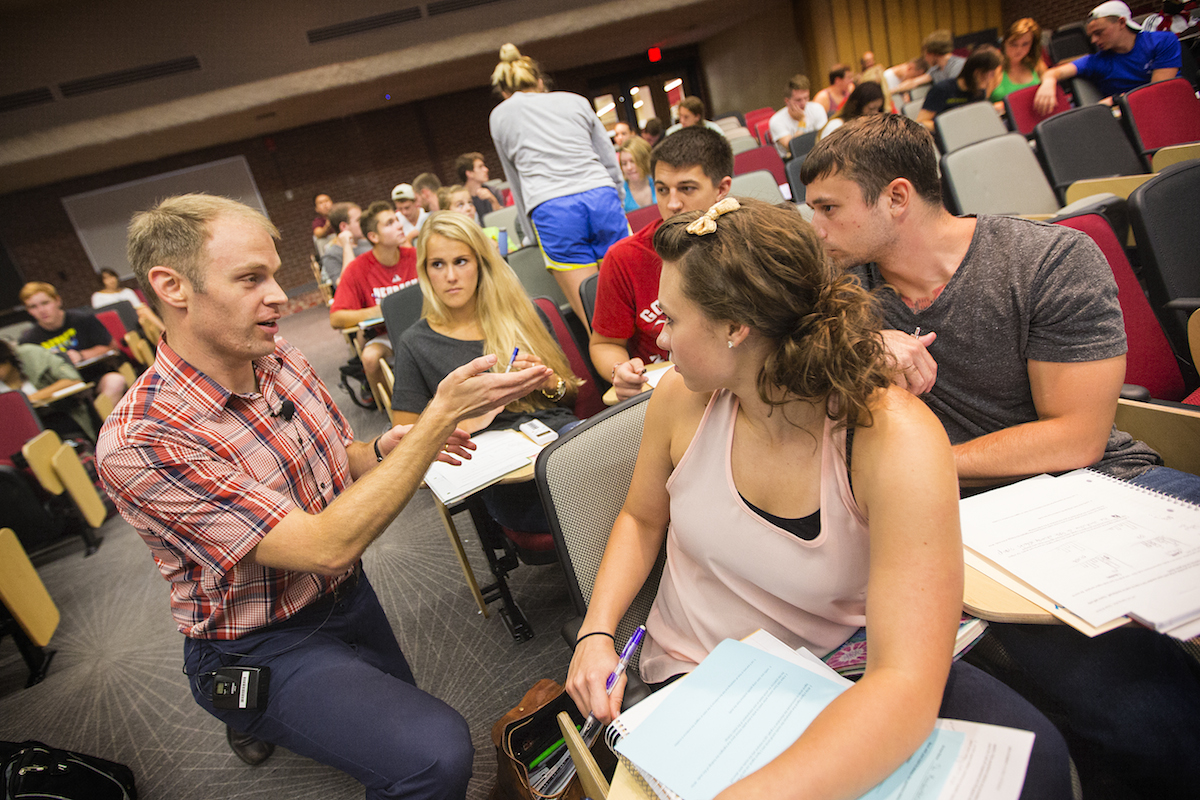
Abstract
Interpreting and constructing biological models are fundamental 21st Century skills in the STEM workforce. The current paradigm that underlies undergraduate science curriculum structure is based on the notion that students must have sufficient declarative knowledge of phenomena before they can model phenomena, usually shunting modeling until graduate school. This seminar will describe our work of engaging students in modeling earlier in their biology curriculum and developing assessments to determine student proficiency in modeling. Specifically we use computer software, Cell Collective, to facilitate modeling practices like interpreting, creating, and revising models of biological systems in introductory biology. We research how students learn using computational models and students' changing abilities to mechanistically explain system dynamics. I will also describe the ongoing work to assess biology students' quantitative modeling abilities throughout their curriculum. Our results have important implications for the when and how we introduce modeling to undergraduate students to prepare them for the changing workforce.Speaker's Bio
Joe Dauer studied Biology and Mathematics at Western Washington and Ecology at Penn State. He completed postdoctoral research at Oregon State and Michigan State in invasive plants and discipline-based education research. His ecological research focused on plant population dynamics of weeds in agricultural and riparian systems. He shifted his research focus to education and now studies how undergraduate students learn about biological systems. His interests lie at the intersection of biology, mathematics, and student learning.Speaker's Contact Information
- joseph.dauer@unl.edu
Video
Understanding Nature Holistically (and without equations)
Main Speaker: Dr. George Sugihara
Professor, McQuown Chair in Natural Science , Scripps Institution of Oceanography, UC San Diego
Date: 10/18/2017
Time: 1:00 PM
Location: Hardin Hall Auditorium (Room 107)
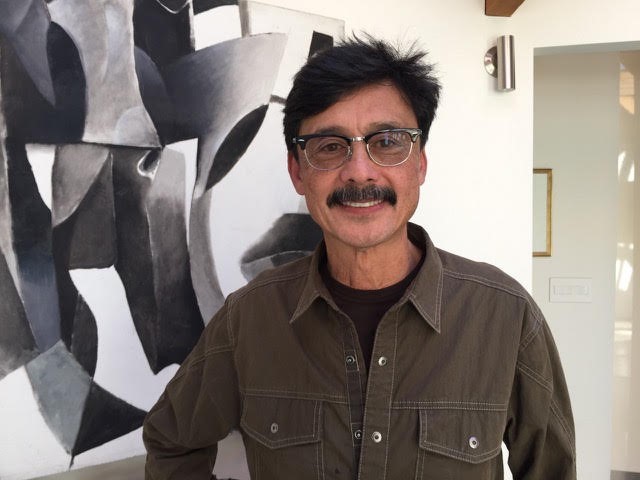
Abstract
Since before the time of Aristotle and the natural philosophers, reductionism has played a foundational role in western scientific thought. The premise of reductionism is that systems can be broken down into constituent pieces and studied independently, then reassembled to understand the behavior of the system as a whole. It embodies the classical linear perspective. This approach has been successful in developing basic physical laws and especially in engineering where linear analysis dominates and systems are purposefully designed that way. However, reductionism is not universally applicable for natural complex systems found in biology and elsewhere where behavior is driven, not by a few factors acting independently, but by complex interactions between many components acting together in time-nonlinear dynamic systems.
Nonlinearity in living systems means that its parts are interdependent --variables do not act in a mutually independent manner; rather they interact, and as a consequence associations (correlations) between them will change as the overall system context (state) changes. This problem is highlighted when extrapolating the results of single-factor experiments to nature, and surely contributes to the frustrating disconnect between experimental findings and clinical outcomes in drug trials. Indeed, while everyone knows Berkeley's 1710 dictum "correlation does not imply causation" few realize that for nonlinear systems the converse causation does not imply correlation" is also true. This conundrum runs counter to deeply ingrained heuristic thinking that is at the basis of modern science. Biological systems (esp. ecosystems) are particularly perverse on this issue by exhibiting mirage correlations that can continually cause us to rethink relationships we thought we understood.
Here we examine a minimalist paradigm, empirical dynamics, for studying non-linear systems and a method that can distinguish causality from correlation. It is a data-driven approach that uses time series information to study a system holistically by reconstructing its attractor - a geometric object that embodies the rules of a full set of equations for the system. The ideas are intuitive and will be illustrated with examples from ecology, epidemiology and genetics.
Speaker's Bio
Sugihara is a data-driven theoretical biologist whose work focuses on developing minimalist inductive theory to understand how systems work -extracting information from observational data with minimal assumptions. He has worked across many scientific domains including ecology, finance, climate science, gene expression, medicine and fisheries. Sugihara is most known for topological models in ecology; empirical dynamic forecasting models; first demonstrations of chaos in nature; research on generic early warning signs of critical transitions; methods for distinguishing correlation from causal interactions in time series; and has championed the idea that causation can occur without correlation.
He is the inaugural holder of the McQuown Chair of Natural Science at Scripps Institution of Oceanography, UCSD and has been a two-term Member of the National Academies Board on Mathematical Sciences and their Applications; Member of NAS Committee to Evaluate US Fisheries Rebuilding; Member of NRC Committee to Evaluate the Effects of Sudden Climate Change.
Sugihara was a Managing Director at Deutsche Bank (1996-2001) and was Head of Global Quantitative Proprietary Trading where his proprietary forecasting methods were used to manage bank investments. He is on the Advisory Boards of several companies and helped found Prediction Company (sold to UBS) and Quantitative Advisors LLC (an advisory company created by Deutsche Bank which leased Sugihara's trading system until 2006). Sugihara has advised the Bank of England, the Federal Reserve Bank of New York, The European Central Bank and The United States Federal Reserve System on questions of systemic risk, and has appeared on panels regarding this topic with major government officials (see link below). In 2009 he was solicited for the position of Chief Scientist of NOAA at the level of Assistant Secretary Department of Commerce. His long-standing academic interest in out- of-sample forecasting, and in nonlinear (unstable, non-equilibrium) systems has relevance to various practical realms, where the implication of such behavior is large.
Cheetahs and Humans, Sharing a Landscape
Main Speaker: Dr. Laurie Marker
Founder and Executive Director , Cheetah Conservation Fund
Date: 10/23/2017
Time: 1:30 PM
Location: Hardin Hall Auditorium (Room 107)
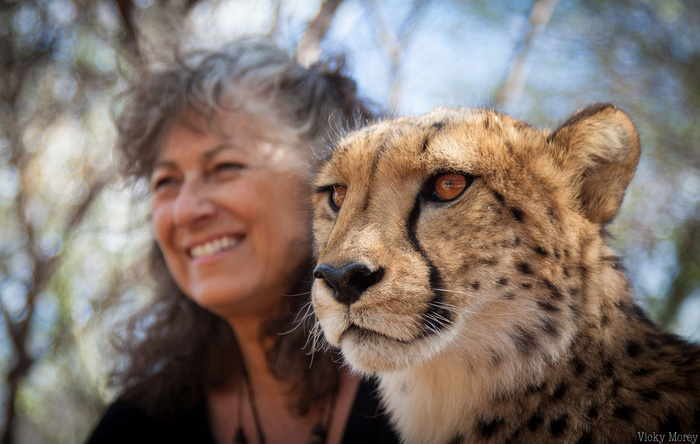
Abstract
Dr. Laurie Marker is a research scientist and conservation biologist recognized as one of the world's leading experts on the cheetah. As Founder and Executive Director of Cheetah Conservation Fund (CCF), Dr. Marker has pioneered research, established conservation models and created cooperative alliances on behalf of the cheetah that had never before existed. Under her leadership, CCF has grown into a world-class cheetah research, education and conservation institution situated near Otjiwarongo, Namibia, on a 100,000-acre, integrated wildlife and livestock private reserve.
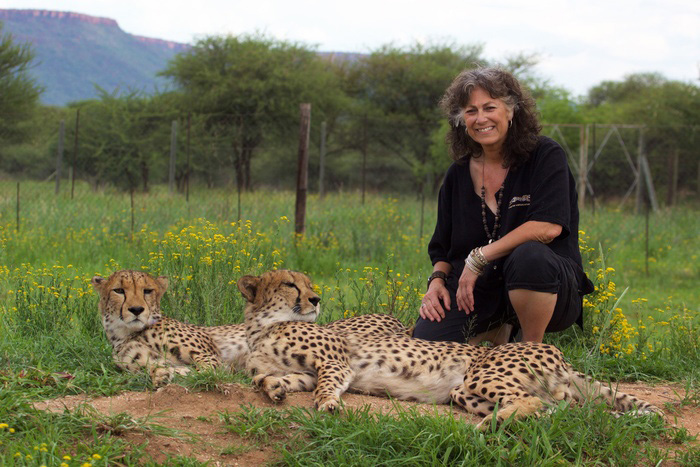
Speaker's Bio
Dr. Marker earned her DPhil in Zoology from the University of Oxford in the UK. She has published more than 80 scientific papers in peer-reviewed journals and is a regular contributor to The Huffington Post. Among many other awards and honors, she was named a Hero for the Planet by TIME Magazine and has been featured in Smithsonian, National Geographic, Discover and The New York Times, as well as on numerous television shows, including, "CNN", "The Tonight Show," "Good Morning America," "The Charlie Rose Show" and "Today."Video
The Role of Climate on Hydrologic Extremes in the Northern Great Plains Region: Updates from the National Climate Assessment
Main Speaker: Ben Livneh
Assistant Professor, Civil Environmental and Architectural Engineering Fellow, Cooperative Institute for Research in Environmental Science , University of Colorado, Boulder CO
Date: 10/25/2017
Time: 2:30 PM
Location: Hardin Hall Auditorium (Room 107)
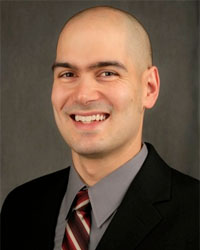
Abstract
The National Climate Assessment summarizes the impacts of climate change on the United States, now and in the future. This presentation will begin with an overview of the 4th National Climate Assessment (NCA4). Next, water-related science from Dr. Livneh's team will be presented focused on understanding the relationship between climate and extreme regional hydrologic events.
The research portion of this presentation will focus first on the recent 2012 drought event, which was accompanied by record deficits in precipitation and high temperatures during the May-August growing season. The primary objective is to understand the proximal causes of this drought event - whether driven by temperature versus precipitation - as well as important regional features of drought events more generally. Land Surface Model (LSM) simulations driven by daily observed meteorological forcing from 1950-2013 were first compared with satellite-derived terrestrial water anomalies, and the U.S. Drought Monitor. Growing season droughts resulting principally from rainfall deficits were found to have a unique signature relative to droughts accompanied by high temperatures or low antecedent. Results from climate change scenarios are presented to comment on plausible Great Plains soil moisture changes in a warmer world.
Interestingly in the same broad region, observations reveal a sharp increase in the Upper Missouri River Basin's year-to-year streamflow variability. The variability of annual streamflow in the 20-year period 1993-2012 has doubled relative to the 20th century, with a disproportionate number of high streamflow years observed after 1993. Yet comparable changes in the variability of precipitation and temperature have not been observed. Of particular interest was the 2011 Missouri basin flood event that represented the largest flood records since observations began in 1898. Here I attempt to diagnose the causes of the streamflow changes, focusing on the relationship between land surface physics and the evolving characteristics of the meteorology. Outcomes of this research are expected to be broadly relevant in light of recent concerns over intensification of the hydrological cycle.
Speaker's Bio
Ben Livneh grew up in Ontario Canada. He earned his first two Civil Engineering degrees at the University of Western Ontario. He earned his Ph.D. degree at the University of Washington under the guidance of Dennis P. Lettenmaier, where he worked on a wide range of problems related to large-scale computational hydrology. His dissertation focused on the development of the Unified Land Model (ULM)--a merger of two operational models: the Sacramento Soil Moisture Accounting Model and the Noah Land Surface Model. During his time in Seattle, Ben also taught several courses at Seattle University. He now leads a research group in the department of Civil, Environmental, and Architectural Engineering and he is also a Cooperative Institute for Research in Environmental Sciences (CIRES) fellow. Professor Livneh's research group addresses physical hydrology problems across multiple scales. Major research themes include physically-based hydrologic model development, land-cover/land-use change, snow hydrology, and hydroclimatology. The group is focused on applying models in innovative ways that integrate remote sensing and in situ observations to understand how changes in climate and land cover will affect water availability at the land surface. Professor Livneh frequently interacts with scientists at the Western Water Assessment, with the departments of Geography, INSTAAR, and ATOC.Video
Unmanned Aircraft for Agriculture and Natural Resources
Main Speaker: Wayne Woldt, Ph.D., P.E.
Water Research Engineer, Associate Professor , School of Natural Resources, UNL
Date: 11/1/2017
Time: 3:30 PM
Location: Hardin Hall Auditorium (Room 107)
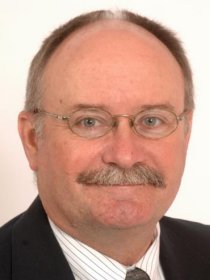
Abstract
There is an increasing level of interest in using unmanned aircraft to help with understanding and managing agricultural production operations and natural resource systems. This seminar will include a review of unmanned aircraft research and development toward early detection of moisture stress in cropping systems, as well as other current research projects that are underway in the Nebraska Unmanned Aircraft Innovation, Research and Education (NU-AIRE) laboratory. Specific areas of presentation emphasis will include: deployment and flight operations of unmanned aircraft systems (UAS), sensor system development, sensor integration, information management, review of flight rules, and flight safety.Speaker's Bio
Wayne Woldt is an Extension Specialist at the University of Nebraska, in the Department of Biological Systems Engineering and the School of Natural Resources. He has been at UNL for 26 years, and has developed a research and extension program on the application of unmanned aircraft systems in agriculture and natural resources. He has established the Nebraska Unmanned Aircraft Innovation, Research and Education (NU-AIRE) lab to conduct research on aerial robotics and remote sensing. Wayne has been flying unmanned aircraft for the past 5 years, and obtained the first FAA issued Certificate of Authorization to fly unmanned aircraft in Nebraska. He has private pilot, remote pilot, glider pilot, and hot air balloon pilot certificates, and over 700 hours of total flight time.Video
Finding common ground: Designing human-dominated landscapes to maintain biodiversity and ecosystem services
Main Speaker: Dr. Christina Kennedy
Senior Scientist, Global Conservation Lands , The Nature Conservancy
Date: 11/15/2017
Time: 3:30 PM
Location: Hardin Hall Auditorium (Room 107)
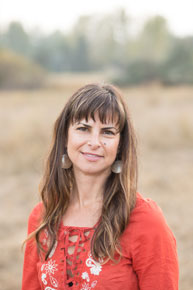
Abstract
Humans have dramatically transformed the Earth's terrestrial lands and are continuing to reshape biodiversity and ecosystem functioning around the world. To address this challenge, traditional conservation efforts have focused on setting aside natural habitat to preserve biodiversity. Increasingly, conservation practice targets human-modified landscapes to reconcile biodiversity, ecosystem services, and economic development. This talk will explore ways in which conservation science and practice is being implemented to maintain biodiversity and enhance ecosystem services in real-world landscapes, and will highlight research gaps that are important to address to advance conservation in the Anthropocene.Speaker's Bio
Christina Kennedy is a Senior Scientist for the Global Conservation Lands at The Nature Conservancy. In this role, she leads science initiatives to help reconcile human land use with nature conservation. She works with public agencies, corporations, civil society groups, and research institutions to integrate the best science and tools on conservation planning, landscape ecology, agroecology, and impact mitigation to promote sustainable landscape design. Christina's research examines the effects of land use, landscape pattern, and habitat fragmentation on species, ecosystems, and the services they provide. Her projects span local to global scales and integrate field studies, landscape modeling, and data synthesis with the aim of improving land use practice and policy. Her work has been published in leading scientific journals, including Ecological Monographs, Ecology Letters, Conservation Biology, and Science. Christina's training is in conservation biology and landscape ecology, with a Ph.D. degree from University of Maryland and master's degree from Duke University, and B.S. degree from Cornell University. Christina currently holds adjunct faculty appointments at Colorado State University and Washington State University.Speaker's Contact Information
- ckennedy@tnc.org
The consequences of local adaptation in stream ecosystems: ecological roles and species distributions
Main Speaker: Steve Thomas
Associate Professor , School of Natural Resources, UNL
Date: 11/29/2017
Time: 3:30 PM
Location: Hardin Hall Auditorium (Room 107)

Abstract
Ecological and evolutionary processes are often assumed to operate at different temporal scales. Most ecological research assumes that species characteristics are static over scales of ecological interest (e.g. days, years, or even decades). However, a considerable amount of research now suggests that ecological and evolutionary processes operate on similar scales and often interact with implications for the role organisms play in an ecosystem. In this presentation, Dr. Thomas will highlight research results that illustrate how local adaptation (a) influences the phenotypic traits and ecological roles of fish in Trinidadian streams and (b) leads to higher species turnover of aquatic insects along tropical elevation gradients relative to temperate latitudes.
The selective pressures on all species change as species are gained and loss and both invading and resident species can face intense selective pressures following community changes. As time since invasion progresses and phenotypes adjust to new selective regimes, trait-mediated interactions between organisms and their environment also change. We have been examining this process using Trinidadian guppies (Poecilia reticulata) and their native ecosystems on the island of Trinidad. This work builds upon extensive prior research demonstrating rapid phenotypic change in guppies in response to the presence or absence of predators. In this presentation, we summarize the results of a large collaborative effort to examine ecological consequences of these changes using a suite of approaches that vary in their complexity.
The second portion of this presentation will examine whether aquatic insect taxa have great species turnover along elevation gradients in Ecuador versus Colorado and whether differences are predicted by the thermal biology of resident species. In essence, this works tests Janzen's classic hypothesis regarding "Why mountain passes are higher in the tropics" and whether it holds for aquatic insect populations. Briefly, our results indicate that tropical species have reduced thermal tolerance, narrower altitudinal ranges and greater species turnover with altitude than their temperate counterparts.
Speaker's Bio
Steve Thomas is an associate professor in the School of Natural Resources at UNL. Dr Thomas was born in upstate New York and still has a home in the 1000 Islands. He holds degrees from the University of New Hampshire, University of Wyoming, and Idaho State University and completed postdoctoral fellowships at Virginia Tech and Cornell University before coming to UNL in 2006. In 2016, Dr Thomas served as the Vice President for the Society for Freshwater Science. He currently serves as the chair of the Water Science Curriculum Committee and leader of the Environmental Science Mission Area.Speaker's Contact Information
- sthomas5@unl.edu
Video
Cat Wars: The Devastating Consequences of a Cuddly Killer
Main Speaker: Peter Marra
Director, Smithsonian Migratory Bird Center , Smithsonian's National Zoo & Conservation Biology Institute
Date: 2/8/2018
Time: 7:00 PM
Location: Hardin Hall Room 107 (Auditorium)
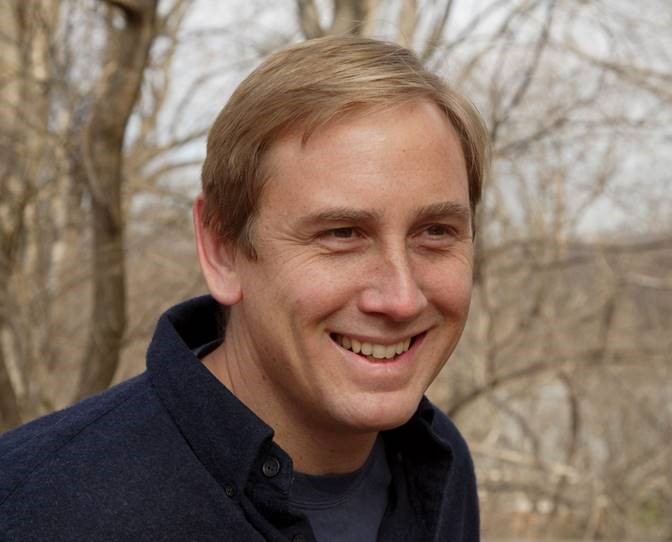
Abstract
Marra's book tells the story of the threats free-ranging cats pose to biodiversity and public health throughout the world. His lecture will trace the historical and cultural ties between humans and cats from early domestication to the current boom in pet ownership, along the way accessibly explaining the science of extinction, population modeling and feline diseases.
His discussion will chart the developments that have led to the present impasse - from breakthrough studies on cat predation to cat-eradication programs underway in Australia today, describing how a small, but vocal, minority of cat advocates has campaigned successfully for no action in much the same way that special interest groups have stymied attempts to curtail smoking and climate change.
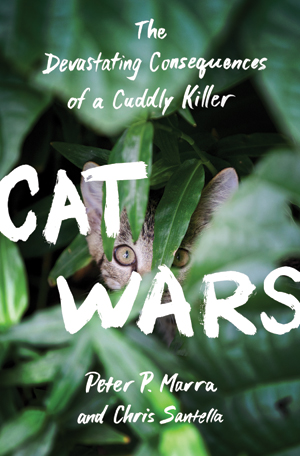
A book signing will follow the talk. Copies of "Cat Wars" will be available for purchase before and after the event.
His lecture is sponsored by the University of Nebraska State Museum, the University of Nebraska School of Natural Resources, the University of Nebraska School of Biological Sciences and the Wachiska Audubon Society.
Speaker's Bio
Pete Marra, an ornithologist and conservation biologist, focuses his research on avian conservation science and population dynamics. He also has founded several large research and communication initiatives, such as Neighborhood Nestwatch and The Migratory Connectivity Project.Video